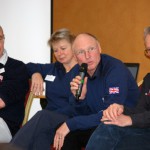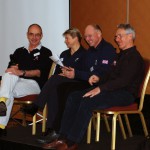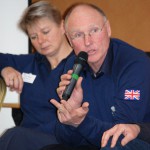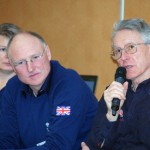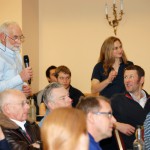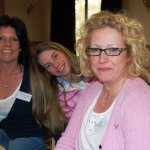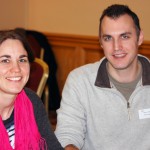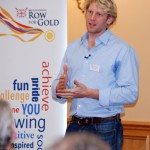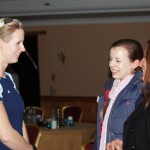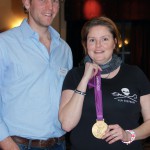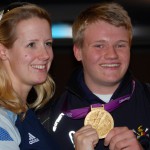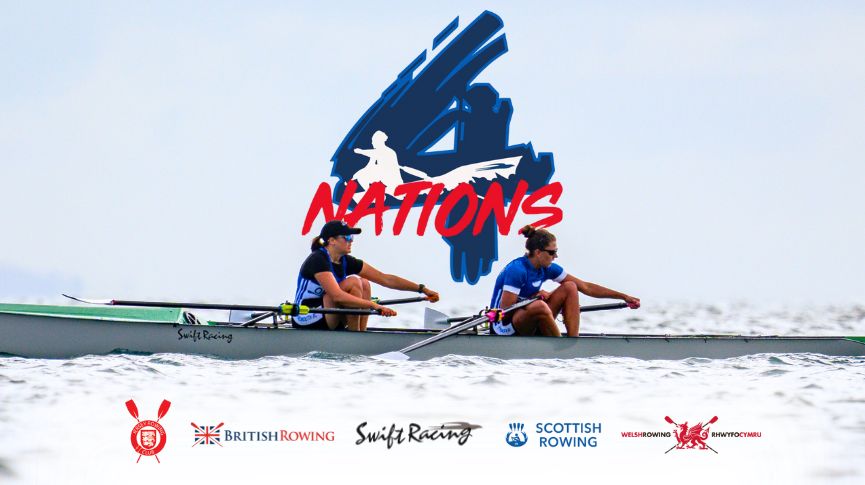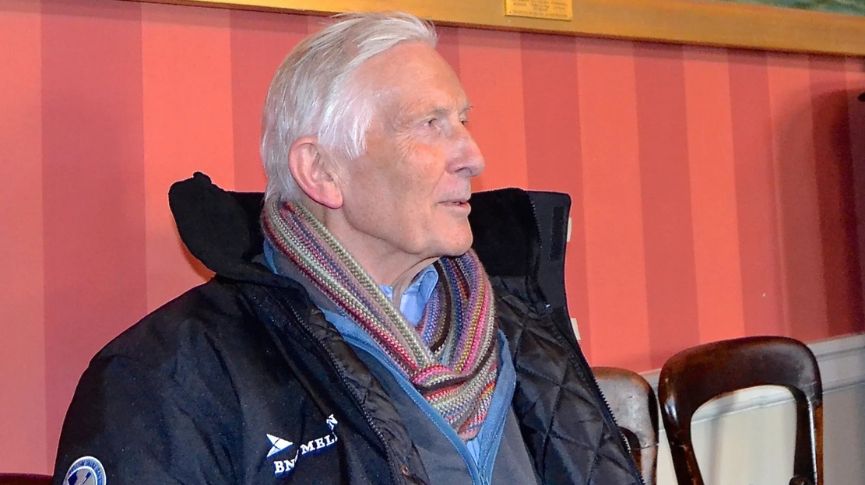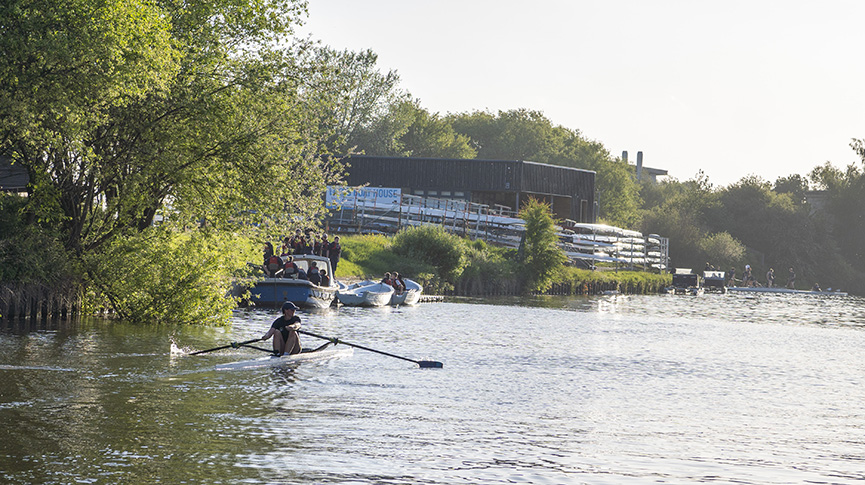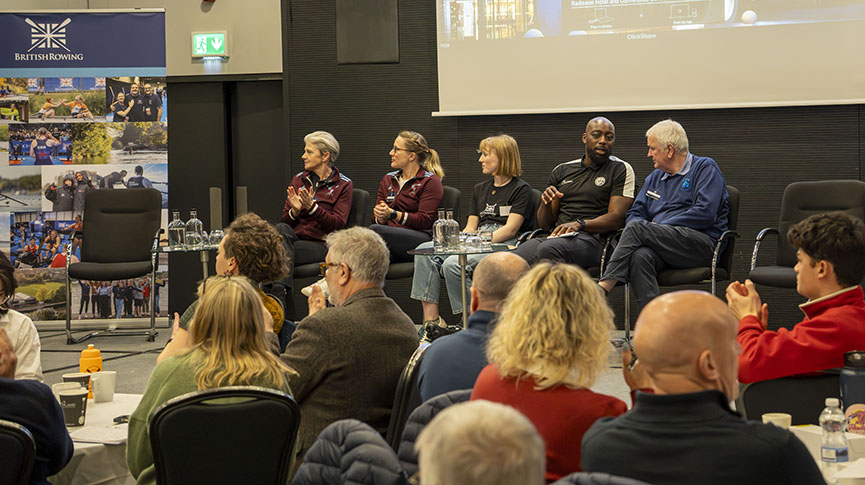A day to remember for British coaches
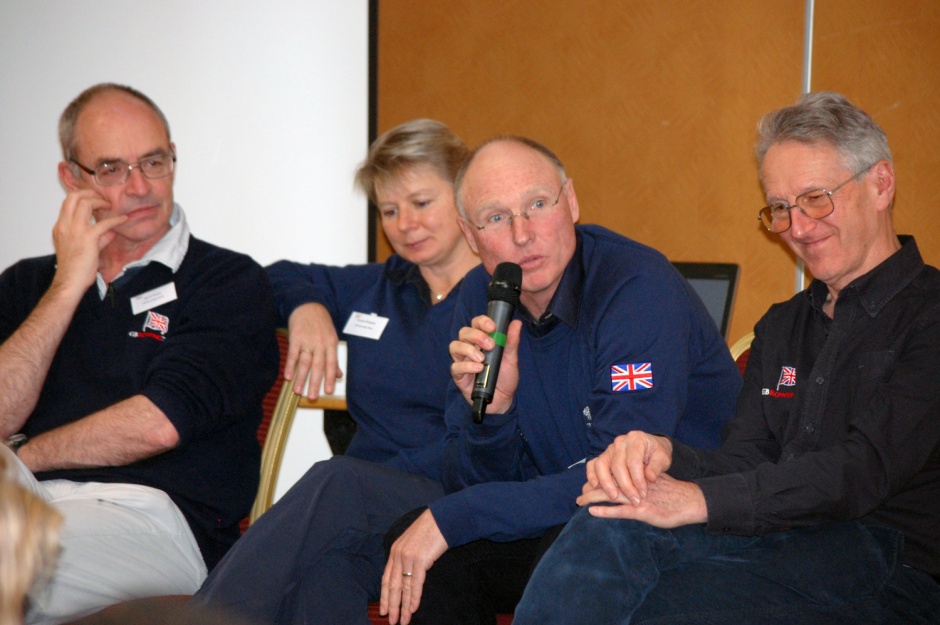
Over a hundred delegates were treated to an enthralling day at the 2013 British Coaching Conference on 26 January, held at The Oxford Belfry Hotel near Thame.
GB Rowing Team Performance Director Sir David Tanner and five GB national coaches were joined by Olympic and Paralympic gold medallists Andrew Triggs Hodge and Naomi Riches, providing a once-in-a-lifetime-opportunity to hear at first hand the story behind their London 2012 success.
Participants arrived from all corners of the country including Val Edwards and son Sam from Runcorn, Christine Hughes from Llandaff, Elizabeth McVeigh from Medway Towns, Kevin Sellar from Plymouth and William Grant from Durham.
Talks with interspersed with regular tea, cake and lunch breaks, giving plenty of time for coaches to exchange experiences, though the highlight of the day was undoubtedly a rare inside look at the GB Rowing Team’s coaching programme.
Presenting ‘Planning for Olympic Success’, Sir David outlined the stages key to the team’s progress since being appointed rowing’s Performance Director in 1996.
“I couldn’t predict the results that would follow but I did have a vision,” he said frankly.
“We all know that rowing won Team GB’s only gold medal in Atlanta – it’s astonishing to think about this now. So the incentive for me on becoming Performance Director for the GB Rowing Team after Atlanta was to secure lottery funding – it was fundamental.
“It was clear that we needed to pull together the coaches, support the rowers and provide the equipment. My job has been to plan and deliver that strategy… to put square pegs in square holes and round pegs in round holes and then back them up.
He added, “One of the reasons for our success has been the stability at the top of British Rowing. Di Ellis is the reason I came into the job and she has provided that stability in her 23 years as Chairman.”
Start Manager Steve Gunn also emphasised the importance of long term development, illustrating how this worked when he was rowing master at Hampton School.
With aims and objectives written down, everyone – including parents, boys, coaches and governors – bought into the strategy which became a “tablet of stone”.
Gunn explained that the number one objective was to have the best first eight, meaning that the J14 coaches understood that their reward would be seeing the first eight win a few years down the track.
“There are no short cuts if you want an athlete to row well,” he said. “Training takes time to work. A lot of people row badly – a lot of that is because they don’t take a long term view.
“Think of trying to build a rowing stroke like a sculpture – each building block has to be right to make the sculpture. No matter how good a sculptor you are, if the building blocks aren’t right you can’t make a good sculpture. That’s the reason why you should take longer to do things.
“Barcelona FC – all their junior teams get thrashed all over the place – why? Because they’re focussed on developing the skills they will need as seniors.”
Speaking about the talent pathway, Pete Sheppard, Chief Coach Juniors and U23s, stressed its importance in enabling athletes to maximise competitive opportunities.
He appealed to the student coaches in the audience: “We’re not making the most of university rowers. We’re open to new match racing ideas. Get in touch with British Rowing if you have any!”
There were also practical sessions with Para-Rowing Team Manager (correct?) Louise Kingsley giving tips on when to use time trials, matrix or seat racing and crew comparisons.
Paul Thompson, Chief Coach for the Women and Lightweights Squads, and Robin Williams ran through technical and skill development as delegates scribbled down their pointers for bringing on crews.
Talking through slides of Katherine Grainger and Anna Watkins in training, Thompson said that the women’s double had developed “not by doing any fancy stuff but by having a plan”.
While Williams said that Heather Stanning and Helen Glover’s success in the women’s pair demonstrated that you can do things very quickly if you put your mind to it.
He said, “The key was their ‘can-do’ attitude. As a coach you get a massive thrill when you explain something to an athlete and they can do it and make the change… The personality and people you’re dealing with are crucial to technique.”
Participants also had a chance to put the speakers on the spot with an entertaining debate unfolding on coaching coxes, junior coaching, training videos, the core and lightweights.
But there was more to follow! The day ended on a high note with the entrance of two Olympic and Paralympic gold medallists – Andrew Triggs Hodge from the men’s four and Naomi Riches from the legs, trunk and arms mixed coxed four.
Fittingly, both athletes paid tribute to their respective coaches with Riches saying, “Since 2009, we’ve had Mary Mclachlan as coach and she’s fantastic. We’re a very small squad so it’s important to understand the way we work as individuals – especially as we are in a mixed boat with a mixture of abilities… Mary was very good because she just told us what we needed to know.”
Triggs Hodge recalled how he first took up rowing at Staffs University and came across coach and captain Ed Green who was determined to support the rowers, despite meagre resources.
“His attitude was the biggest thing I’ve taken away from rowing – it was key to my career. Most people would ask the Union if they could buy something and then invoice them, Ed would buy it first and then send them an invoice! I left Staffs thinking that you just have to fight for stuff.
When I look back [at my career], it’s not my 2k ergo time – it’s being part of the Olympic team and part of Staffs Boat Club that fought so incredibly hard – that’s what I’ll take away with me.”


